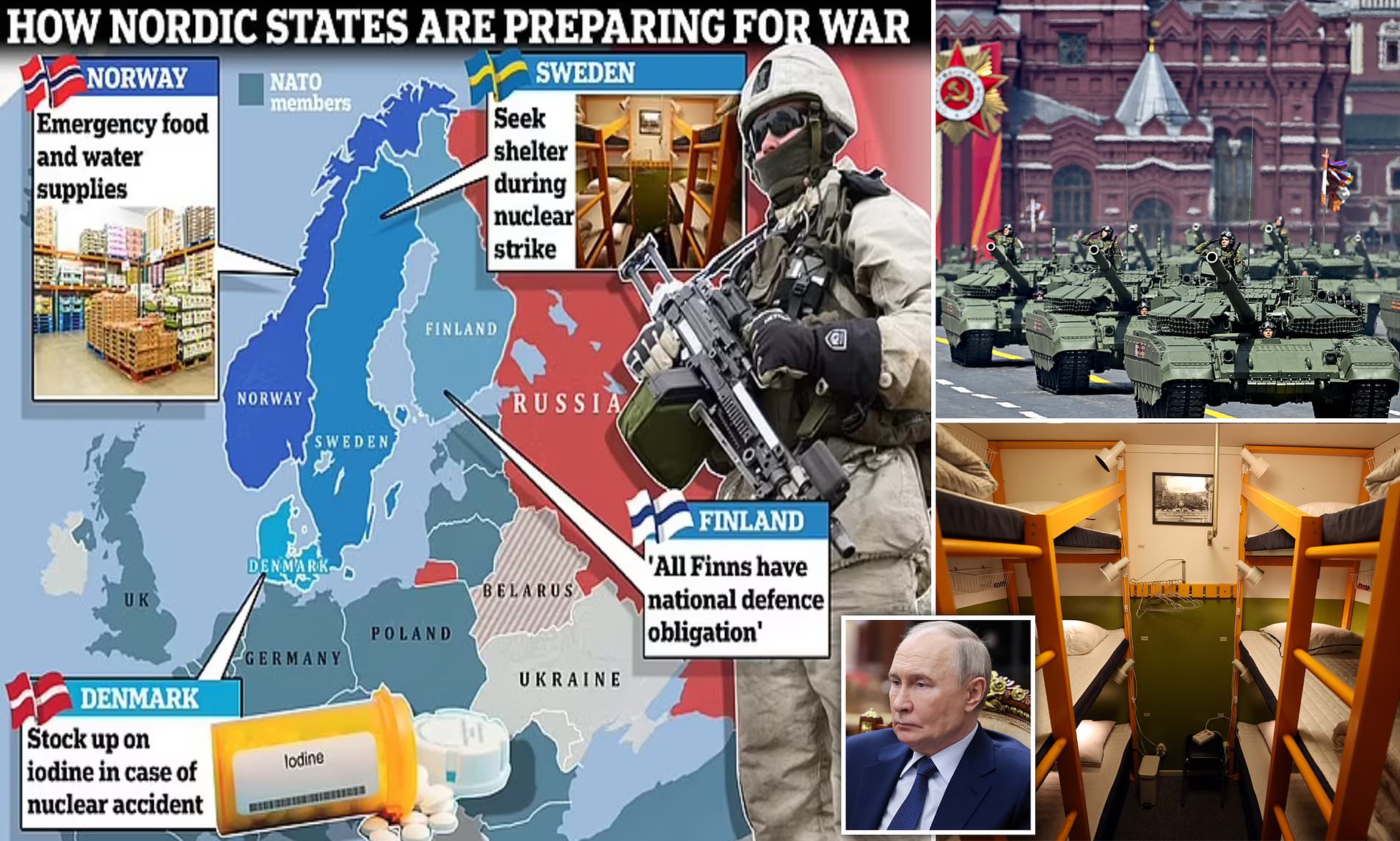
EU Launches First-Ever Plan to Stockpile Essential Goods
The European Union has unveiled its first-ever strategy to stockpile essential goods such as food, water, fuel, and medicines in preparation for potential crises. This move comes amid growing concerns over the possibility of a conflict with Russia, which is currently engaged in a war against Ukraine, an EU neighbor.
The EU's new stockpiling initiative aims to ensure that critical supplies remain accessible during emergencies such as energy blackouts, natural disasters, conflicts, or pandemics. The plan emphasizes coordination between member states to identify gaps and build up "EU-level stockpiles" that can be accessed quickly when needed.
EU Crisis Management Commissioner Hadja Lahbib highlighted the importance of preparedness, stating, "The goal is very simple: to make sure that essential supplies that keep our societies running, especially those that save lives, are always available." She added, "The more we prepare, the less we panic."
Preparing for a Range of Crises
The strategy covers not only military threats but also natural disasters, human-induced crises, health emergencies, and hybrid threats like cyberattacks and disinformation campaigns. The EU recognizes that different countries face unique risks. For example, Finland, which shares a long border with Russia, has long focused on preparing for potential conflict, while Spain may prioritize measures against wildfires.
Lahbib explained that regardless of the cause of a crisis, the impact on citizens—such as energy shortages—can be similar. "People are without energy, and that's why we need to stockpile items everywhere in the European Union," she said.
As part of its broader readiness efforts, the EU has advised households to prepare three-day survival kits containing essentials like water, food, and flashlights. The commission believes that better integration of supply chains within the Single Market will support these initiatives.
National Efforts and Challenges
While the EU works on a coordinated approach, individual member states are also taking steps to enhance their own resilience. For instance, Sweden has distributed five million pamphlets to its population, urging them to prepare for the possibility of prolonged conflict. Since Russia’s invasion of Ukraine, Sweden has emphasized the need for both mental and logistical preparedness.
Sweden, which joined the EU in 1995 and NATO in 2024, is now better positioned to implement new plans aimed at readying its population for potential threats. However, not all nations are equally prepared. The UK, despite its historical experience with armed conflicts, has lagged behind in civil planning.
In November, the UK’s Chief of Defence Staff, Admiral Sir Tony Radakin, acknowledged that the country lacks some of the civil planning aspects that other allies have traditionally incorporated into their strategies. He stated that the UK is actively engaging with other nations to learn from their experiences and adapt suitable measures.
UK's National Security Strategy
In June, the UK published its National Security Strategy 2025, titled "Security for the British People in a Dangerous World." The document acknowledges the growing threat of direct attacks on the UK homeland and outlines a series of measures to strengthen national security.
These include reinforcing borders, enhancing critical infrastructure, building economic ties with the EU and the US, and rebuilding the defense industrial base. The strategy also emphasizes the importance of domestic resilience, aiming to address risks that could disrupt daily life.
A new Resilience Strategy will focus on supporting civil society and the public sector in managing vulnerabilities. Part of this effort includes launching public communications to inform citizens about preparedness for various risks.
The UK government has allocated £1 billion to prepare for biological incidents, accidents, and attacks. These investments reflect a growing recognition of the need for comprehensive emergency planning across all levels of society.
A Shared Approach to Preparedness
As the EU and its member states work to enhance their readiness for a wide range of potential crises, the emphasis remains on collaboration, flexibility, and proactive measures. While each nation faces unique challenges, the overarching goal is to ensure that essential supplies and services remain available in times of need.
This collective effort underscores the importance of preparedness in an increasingly unpredictable world. By learning from past experiences and adapting to emerging threats, the EU and its partners aim to safeguard their populations and maintain stability in the face of uncertainty.
